Physical Address
304 North Cardinal St.
Dorchester Center, MA 02124
Physical Address
304 North Cardinal St.
Dorchester Center, MA 02124
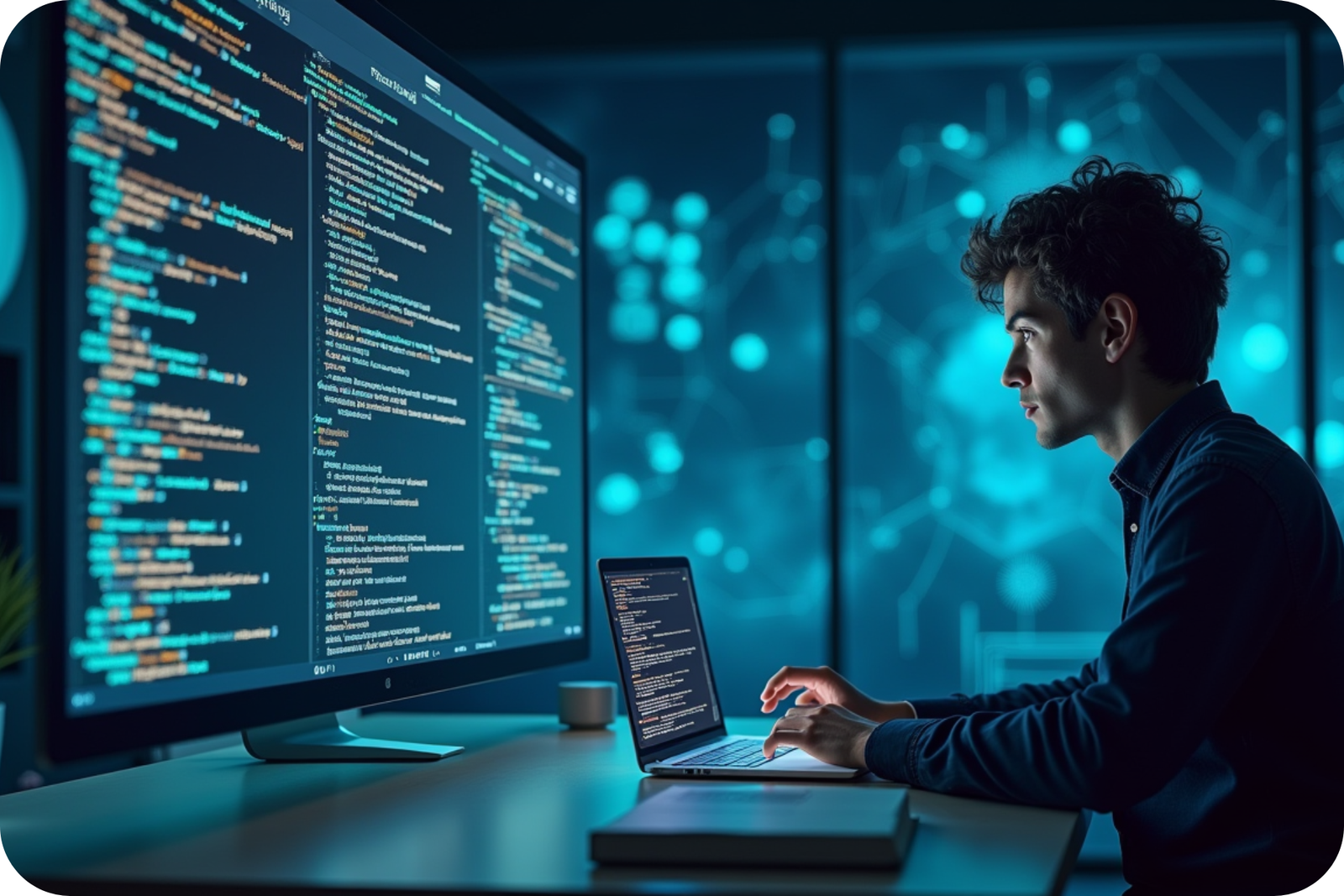
From a futuristic idea to a powerful force molding sectors and daily life, artificial intelligence (AI) has rapidly advanced. From healthcare to entertainment and everything in between, artificial intelligence can have almost revolutionary uses all around us in the digital age. We will investigate how this potent technology is improving efficiency, addressing difficult issues, and even transforming our interactions with the surrounding world as we examine the top ten ways artificial intelligence is affecting our planet.
One question is prominent in the changing technology landscape: What can artificial intelligence do today? The possibilities of artificial intelligence are growing at an exponential rate and are already having a big influence in many fields. AI is changing how companies function, our access to medical care, and even our entertainment experience, from automating boring tasks to enhancing real-time decision-making. Now and in the future, let us look at the top ten different things artificial intelligence is changing for us.
One question stands out in the constantly changing technology field: What can AI accomplish today? With an exponential pace of development, artificial intelligence is already having a major impact in many industries. AI is changing the way companies run, our healthcare access, and even our enjoyment, from the erasing of menial jobs to the enhancement of on-the-fly decision-making. Now and in the future, let us look at the ten most important ways that artificial intelligence is changing our lives.
Beyond simply a buzzword, artificial intelligence is a driving factor altering the world in ways we had not before dreamed of only ten years ago. From automating processes in companies to changing personal experiences, artificial intelligence pervades our everyday life, making everything smarter, faster, and more effective. The issue is: What can artificial intelligence accomplish today? In this article, we will review the top ten ways artificial intelligence is remaking our world and highlight its influence on the future of work, health, and beyond.
From a future idea to a major actor in revolutionizing businesses all around, artificial intelligence (AI) has rapidly developed. Most amazing and revolutionary is what AI can accomplish today AI systems improve accuracy, productivity, and productivity over a range of fields. From finance to healthcare, the capacity of AI to handle big data sets and make updates in real time is transforming corporate and personal behavior. Advances in artificial intelligence technology let it reshape conventional techniques and open fresh possibilities, hence raising its impact. Beyond automation, artificial intelligence today has the potential to drive creativity and efficiency on a previously unknown level.
Especially in fields like medicine, where machine learning models can assist diagnosis diseases, forecast patient outcomes, and customize therapies, artificial intelligence has an effect. AI is not limited to enhancing efficiency; it is also saving lives and raising the quality of patient care. Furthermore, artificial intelligence’s use in financial forecasting, to mention just a few examples ranging from customer service to normal gadgets including smartphones and domestic assistants, confirms its great extent. Its capacity to change things reveals the power of artificial intelligence, therefore ranking it among the most influential technological developments of the 21st century.
AI is without question increasingly present in our society; it permeates nearly every sphere of life. Beyond merely automating, AI nowadays enables governments and companies to make clever decisions and forecast trends with hitherto unparalleled accuracy. Million of people worldwide feel the influence of artificial intelligence in everything from voice assistants to recommendation systems, altering our technological and interpersonal interactions. As artificial intelligence evolves, its power to affect sectors such education, healthcare, and transport will only grow.
With AI’s increasing influence, we are observing improvements in our lifestyle and job techniques. Intelligent automation by artificial intelligence improves the workplace by releasing staff to work on more challenging projects. AI is powering pioneering research, improving diagnostics, and providing custom treatments in the medical sector. The power of AI is challenging the limits of what was once thought feasible as it grows more sophisticated, therefore it is a principal force advancing the future of society and technology.
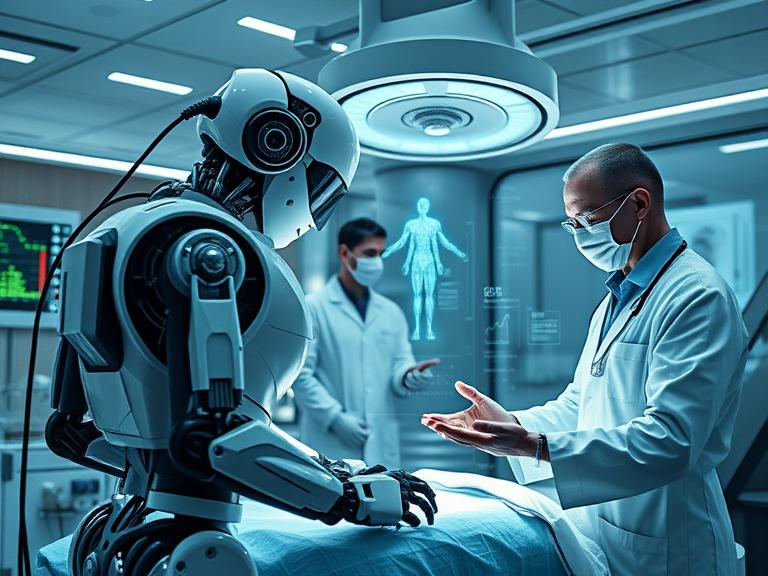
Among the most important uses of artificial intelligence in medicine is its capacity to help spot different illnesses early. Regarding healthcare, what artificial intelligence can accomplish now is transforming our approach of disease detection, usually before they are lethal. AI-powered algorithms can find patterns present in medical data including imaging scans, lab results, and patient history that may go unnoticed by human eyes. For instance, artificial intelligence is more and more used to find much earlier signs of cancer, heart disease, and neurological problems, hence increasing patient outcomes and survival rates.
AI is an indispensable diagnostic aid for intricate disorders given its capacity to handle great volumes of information and give instantaneous analysis. Especially in fields including pathology and radiology, where AI systems can help doctors interpret X-rays, MRIs, and other diagnostic tests, what AI can achieve is very important.AI is aiding to minimize diagnostic mistakes by means of its high accuracy and speed, hence guaranteeing patients get timely and correct care. The part of artificial intelligence in early detection is increasing, therefore one of the most interesting advancements in medical technology.
One of the most hopeful frontiers where artificial intelligence is significantly influencing is personalized medicine, which tailors therapies to the exact needs of individual patients. As AI models analyze genetic data, medical history, and lifestyle factors to advise tailored therapy, what AI might accomplish now in personalized treatment is revolutionary. AI assists medical professionals in generating more efficient and targeted therapy plans by anticipating patients’ reaction to particular medications or procedures thereby boosting the chances of positive results.
The strength of artificial intelligence is in its capacity to sift big volumes of data and spot trends specific to every individual. AI in tailored therapy lets for a more patient-centric approach by departing from the model of “one-size-fits-all. ” Already applied to create customized drug plans, exact cancer therapies, and even psychiatric treatments adjusted to personal demands, artificial intelligent systems are employed to do so. Its capacity to offer more precise and customized treatment will keep changing the face of healthcare as artificial intelligence technology advances, hence enhancing patient satisfaction and health results.
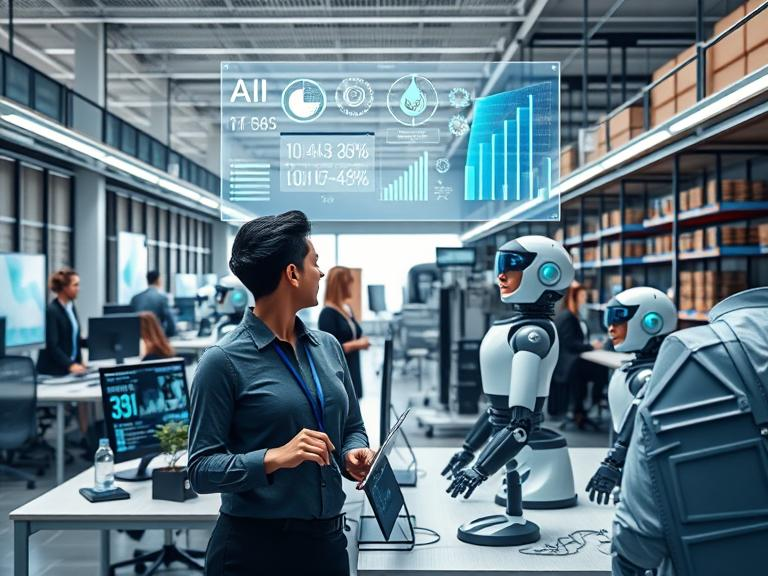
Artificial intelligence is changing businesses by means of automating mundane activities, improving efficiency and output. Today, artificial intelligence can much decrease the time and resources needed to repeat activities like customer service, scheduling, and data entry. Free up staff to concentrate on more tactical projects by means of AI-driven systems like chatbots and virtual assistants that handle these jobs fast and accurately. Automating processes not just simplifies operations but lets companies save money and enhance service level.
In sectors such retail, for instance, AI tools are automating order processing, inventory control, and even customer queries. Automation by artificial intelligence is transforming job descriptions since routine chores are delegated to robotics and human employees can engage in more creative, sophisticated work. AI’s capacity to automate daily activities will only keep growing as it develops, therefore providing even more effectiveness throughout several fields.
One of artificial intelligence most potent uses nowadays is its capacity for data analysis and strategic thinking. In this field, artificial intelligence could transform how companies make decisions by enabling them to process enormous volumes of information at lightning speed. Using machine learning codes, artificial intelligence can find insights, discover trends, and forecast future results very accurately. By allowing businesses to make data-driven decisions that are more timely and correct, this gives them a market advantage.
Furthermore supporting companies in strategic planning is their ability to use artificial intelligence technologies to increase efficiencies and discover fresh possibilities. Regarding data evaluation, artificial intelligence can develop more compelling marketing campaigns, predict need, and simplify supply lines. Whether in commerce, finance, or healthcare, AI’s capacity to analyze intricate data and deliver practical advice is priceless since it assists companies in creating plans that correspond to consumer demands and market trends.
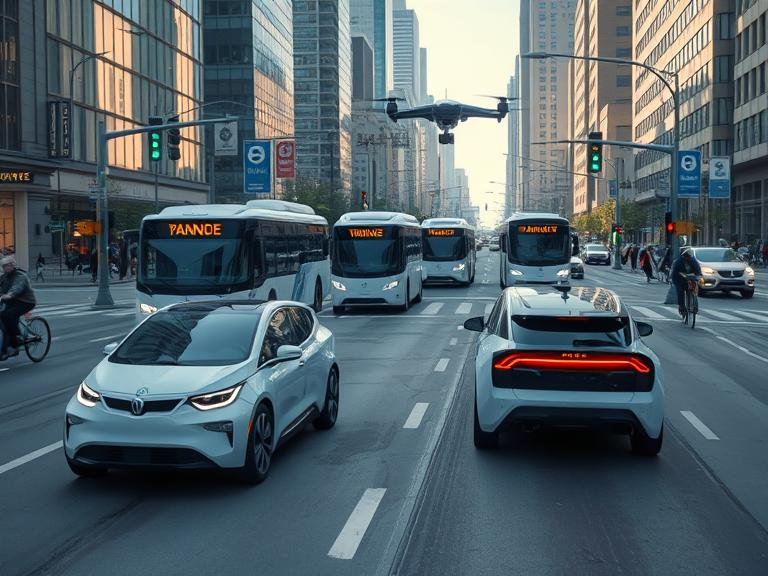
Offering safer and more efficient travel, self-driving cars constitute one of the most thrilling developments in artificial intelligence. Real-time decision making, obstacle detection, and traffic-condition-based adaptive driving are among the elements of autonomous vehicles wherein artificial intelligence can operate today. Reducing the chance of human errors that lead accidents, AI-powered sensors and cameras help self-driving cars pick out road signs, other vehicles, and pedestrians.
Advanced driver-assistance systems (ADAS) help human drivers, therefore improving road safety. AI in this field offers collision detection, lane-keeping support, and automatic braking helps to avoid accidents before they happen. Fully self-driving cars could significantly cut traffic fatalities and make travel safer for all as artificial intelligence improves.
By lessening congestion and increasing road productivity, artificial intelligence is changing traffic control. Today, artificial intelligence can help us to analyze real-time traffic data so as to optimize signal timings, therefore lowering unnecessary delays and improving vehicle flow. By suggesting different paths to circumvent bottlenecks, AI-driven solutions track traffic patterns and assist people in conserving time by observing them.
Smart cities also utilize artificial intelligence to forecast traffic spikes and run their public transportation more effectively. Traffic management is one thing artificial intelligence can help with; it can also help to lower emissions by reducing fuel use and idle time. AI-powered initiatives are helping urban mobility become cleaner, safer, and more sustainable going forward.

Through personalized learning resources that adjust to every student’s particular requirements, artificial intelligence is changing education. Current artificial intelligence capabilities include studying patters analysis, knowledge gap detection, and custom study plans delivery. Learning becomes more effective and interesting since platforms run by AI can change the level of courses depending on a student’s performance.
Furthermore giving instant feedback, AI-based tutoring platforms help pupils to better grasp difficult topics. In education, artificial intelligence can help make certain students get customized help via AI-driven study suggestions, interactive quizzes, voice assistants. This strategy improves learning results and increases access of education to pupils of every level.
Apart from helping students, AI is transforming the technique teachers provide education. Automating technology now helps free up teachers to pay more attention on teaching by grading, attendance tracking, and content creation so cutting administrative work. Using AI-driven virtual assistant, questions of students can be replied quickly, therefore offering more support beyond the classroom.
Furthermore, artificial intelligence software look over data on student performance to assist teachers to spot underperforming pupils early. In AI-aided instruction, artificial intelligence can give insights that help teachers to customize their lessons for improved understanding and interaction. Teachers may produce a more engaging and efficient learning setting with help of artificial intelligence.
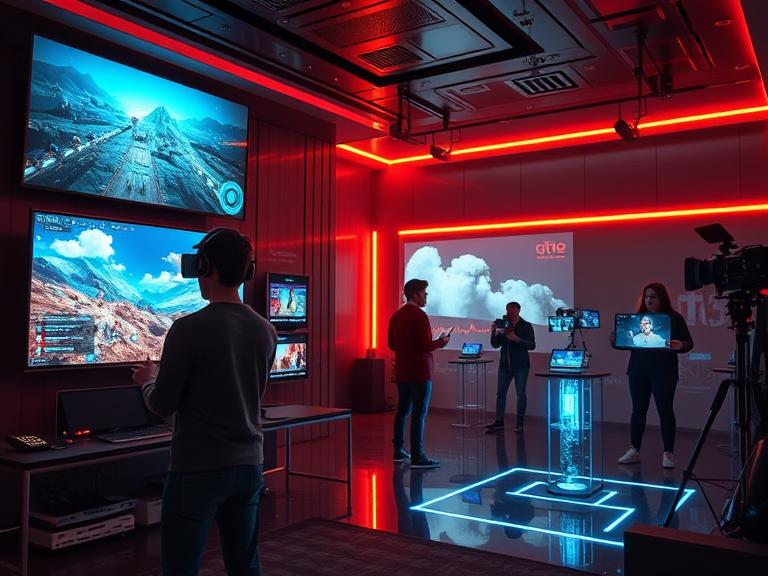
The entertainment sector employs AI to offer more engaging and flexible experiences. In video games today, artificial intelligence can create lifelike settings, enhance character animations, and customize player experiences. By reacting smartly to players, games become more challenging and uncertain.
AI is simplifying editing, screenplay writing, and visual effects in movie making. In movies, artificial intelligence can analyze scenes to recommend edits, improve CGI, and even produce lifelike deepfake technology for special effects. As AI keeps developing, its influence in film and video games will only grow to redefine creativity.
By writing original songs and perfecting content suggestions, AI is transforming the music field. By means of deep learning models, AI can now generate melodies, words, and even complete pieces. Using artificial intelligence, these systems can examine musical styles and produce original works personalized to particular styles, thereby enabling artist to explore fresh creative possibilities.
Beyond composition, AI is transforming how listeners uncover fresh track. AI could help in content recommendation by examining user preferences and recommending music depending on listening patterns. Streaming services such as Spotify and YouTube make use of artificial intelligence to generate custom playlists, so guarantee will always find songs matching their taste.
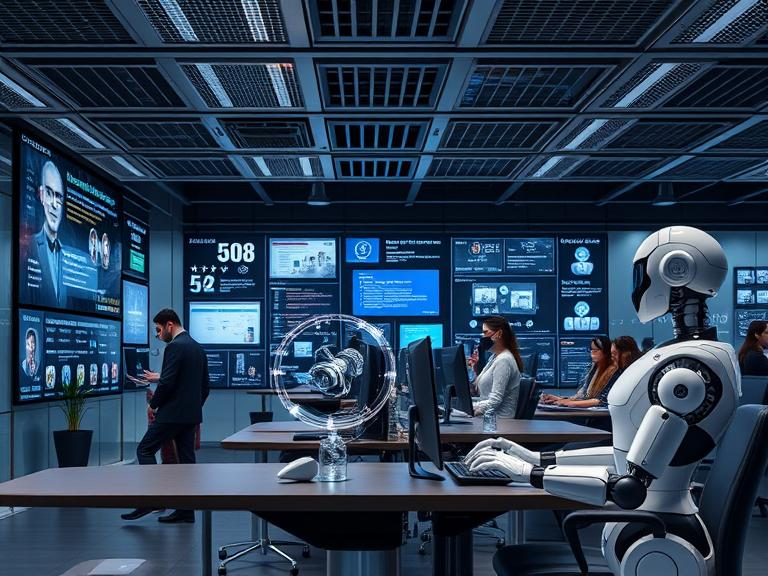
By offering quick and efficient service options, artificial intelligence is transforming customer service. Using virtual assistants, chatbots, and speech recognition systems, artificial intelligence can currently automate answers. Handling 24/7 customer requests with these AI-powered systems cuts waiting times and boosts customer satisfaction.
AI analysis of customer information further improves personalization by offering individualized suggestions and answers. Artificial intelligence in customer support can forecast consumer needs and direct them toward the most suitable solutions, therefore simplifying problem resolution. This enhances customer experience as well as helps companies to lower running costs.
AI is changing how people engage with digital platforms, therefore improving applications image Name and more seamless. Personalized suggestions, voice recognition, and predictive text are among AI’s capabilities to raise customer interaction. Systems powered by AI examine behavior patterns and give personalized content, hence enabling a flawless browsing experience.
E-commerce to streaming services, AI improves search results and tailors user interfaces according to user choices. AI can improve user experience by providing relevant recommendations, therefore increasing digital interactions efficiency and pleasure.
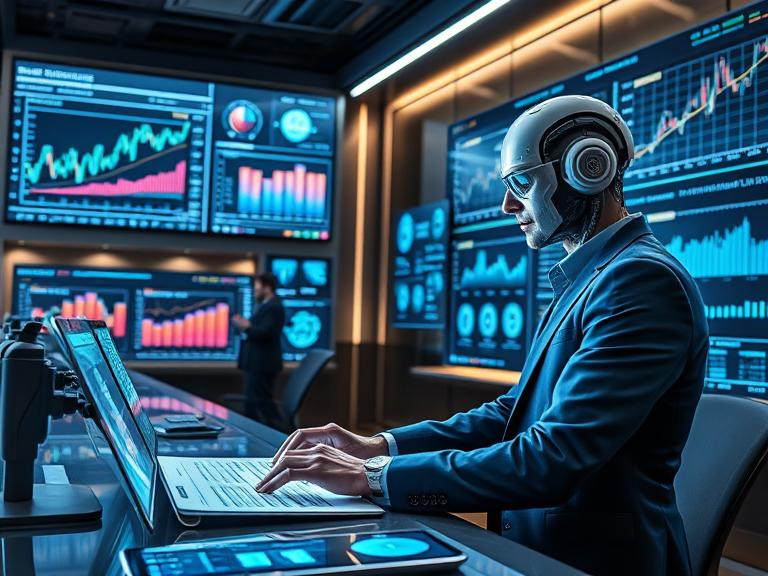
AI is essential in financial markets for quicker and more precise trading decisions. Today’s artificial intelligence in algorithmic trading can process huge quantities of market data in actual time, spot trends, and trade in milliseconds. Investors benefit from AI-driven trading software that reduces human error and raises profits.
Using predictive analytics, artificial intelligence could predict stock prices changes and improve trading techniques. For both retail traders and institutions, artificial intelligence in algorithmic trading allows for more accurate and efficient data-driven investment decisions.
Protecting financial transactions and stopping fraud critically depend on artificial intelligence. Real-time banking activity monitoring to identify questionable transactions is among AI’s current capabilities. Reducing the danger of cyber threats, AI-powered fraud detection systems use machine learning to spot anomalies.
Through biometric authentication and predictive risk evaluation, artificial intelligence also bolsters security. AI in financial security guarantee provides helps companies and people to be more guarded against cybercrime, identity theft, and fraud.
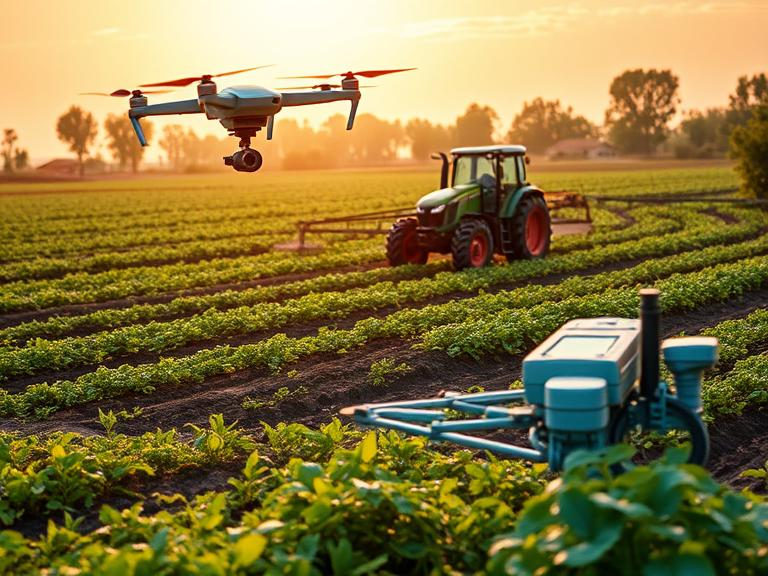
AI in Agriculture: Enhancing Farming Practices and Sustainability
Through artificial intelligence, better crop management is facilitated in agriculture. Today, artificial intelligence can precisely forecast yields, evaluate soil conditions, and track crop health. Artificial intelligence-powered drones and sensors give live feedback, hence farmers may use data to guide their decisions.
With AI, farmers can perfect irrigation, cut pesticide usage, and raise general productivity. AI applications in crop management guarantee improved yields and reduced environmental impact, therefore making agriculture more effective and sustainable.
By maximizing resources and cutting waste, AI is supporting sustainable agriculture. Agriculture methods run by artificial intelligence reduced water and fertilizer need with great accuracy. Intelligent, AI-driven robots automate sowing, weeding, and harvesting, hence lowering labor expenses and increasing efficiency.
By forecasting unpredictable weather events and guiding farmers on ideal techniques, artificial intelligence also helps fight against climate change. By sustainable agriculture, artificial intelligence sets the stage for environmentally friendly agricultural technologies that harmonize food output with natural accountability.
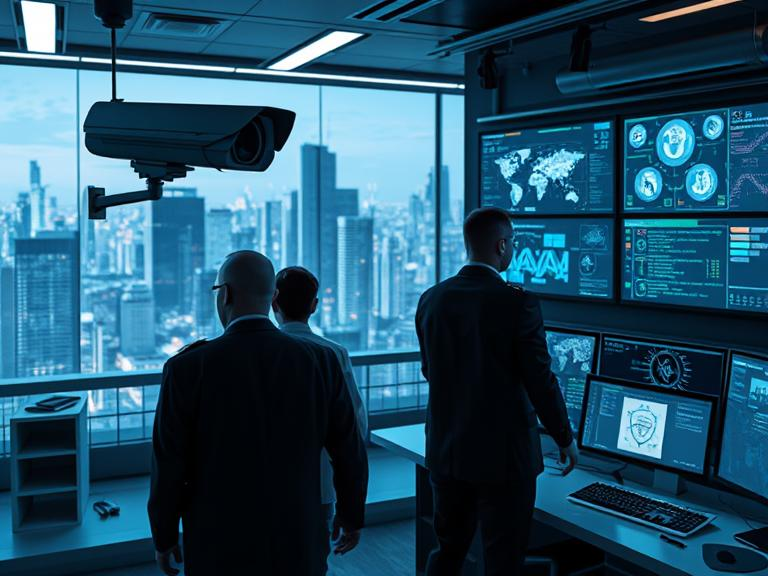
Artificial intelligence leads in national defense and cybersecurity. AI can currently identify weaknesses, find cyber threats, and react to attacks instantly. Security systems driven by artificial intelligence evaluate trends to identify possible breaches ahead of time.
Beyond digital dangers, artificial intelligence boosts physical security by scanning security camera footage for irregular activities. Threat detection can help artificial intelligence make security systems more intelligent and proactive in stopping strikes.
AI is improving surveillance technologies to protect people better. Facial recognition, behavioral analysis, and live monitoring of security cameras are among the things AI enables today. With artificial intelligence-driven technology, law enforcement can monitor criminals and stop their activities before they occur.
With computer-based analysis of great quantities of video, AI can recognize unnatural activity and notify authorities almost immediately. AI can help in crime prevention by allowing proactive police tactics, hence making cities safer.
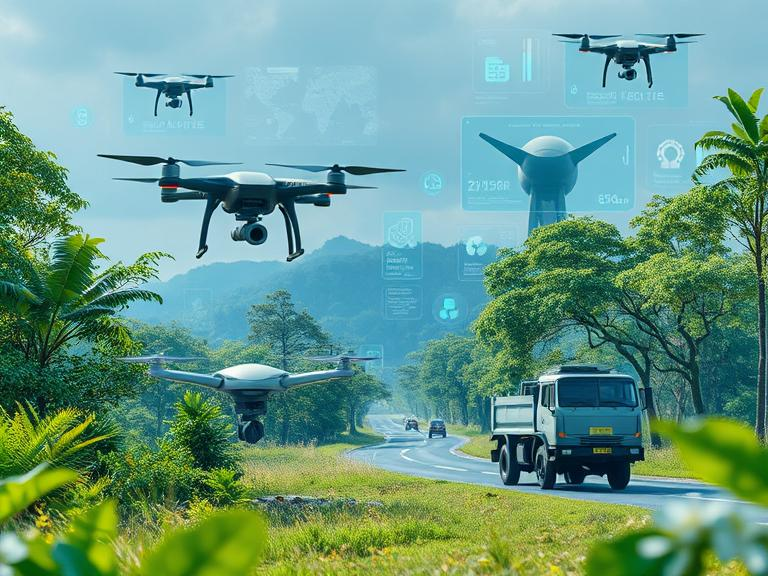
Much depends on artificial intelligence for forecast and understanding of climate change. Today, artificial intelligence could assist us to improve climate models by handling big amounts of satellite, weather station, and sensor data. Better weather forecasts and artificial intelligence help scientists to predict events including hurricanes and forest fires.
By carefully evaluating complex environmental data, artificial intelligence improves decision making and aids in disaster response and resource allocation. Among artificial intelligence’s contributions to climate science is their acceleration of efforts to battle global warming and aid underprivileged populations.
Artificial intelligence is changing wildlife conservation and environmentalism. Satellite pictures enable artificial intelligence to assess ecosystem health, follow threatened species, follow deforestation, and so on. Artificial intelligence powered drones and camera traps let scientists study animal populations by not disrupting their natural environments.
Artificial intelligence also assists in fighting illegal hunting by detecting unusual behavior in protected areas. By providing current information supporting conservation projects, artificial intelligence helps to preserve natural habitats and safeguard biodiversity.
Artificial intelligence is developing fast, changing sectors and redefining human technology interface. Though today’s artificial intelligence capabilities are already amazing, the future promises much more innovation. From improving automation to transforming healthcare, artificial intelligence keeps advancing frontiers and therefore making systems more intelligent and effective.
But for AI to achieve its total potential, ongoing studies and judicious development are absolutely necessary. The developments artificial intelligence can bring in the next years will depend on better models of machine learning, more openness, and ethical deployment of artificial intelligence. By emphasizing responsible innovation, AI can help to build a future that serves both industries and society.
Ethical and environmental issues must be dealt with as AI grows stronger. Today AI can make data-driven choices, but guaranteeing in artificial intelligent systems is fundamental care, confidentiality, and accountability. Questions such job displacement, bias in algorithms, and surveillance ethics need close management and control.
Another essential consideration for the future of artificial intelligence is sustainability. AI’s reliance on rare resources and energy use both contribute to concerns about its environmental impact. In sustainable development, artificial intelligence can help to cut waste, improve green technology, and maximize resource use. Balancing creativity with ethics and sustainability can turn artificial intelligence into a power for good change over time.
[…] […]